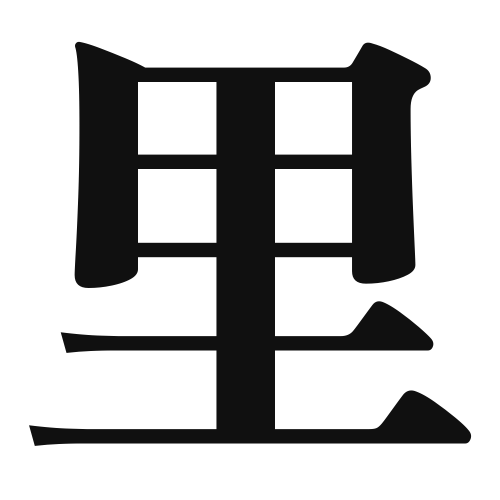1. Overview of Meaning
The kanji “里” (pronounced “sato” in Japanese) primarily means “village” or “hometown.” It often conveys a sense of rural life and community, representing a place where people live together in harmony.
2. Formation and Radical
Formation of the Kanji: The kanji “里” is classified as a pictogram, originally depicting a walled area or a settlement. It visually represents the concept of a place where people gather.
Radical: The radical for “里” is “里” itself, which is used in various kanji related to places and communities.
3. Examples of Usage
Common Words and Phrases: Some frequently used words that include “里” are:
- 故郷 (こきょう, kokyō) – hometown
- 里山 (さとやま, satoyama) – rural mountain area
Example Sentences in Daily Conversation:
- 「私は里に帰りたいです。」(Watashi wa sato ni kaeritai desu.) – “I want to return to my hometown.”
- 「里山の風景は美しいです。」(Satoyama no fūkei wa utsukushii desu.) – “The scenery of the rural mountains is beautiful.”
4. Synonyms and Antonyms
Similar Kanji: A similar kanji is “村” (むら, mura), which also means “village.” However, “村” typically refers to a smaller community, while “里” can imply a broader sense of a hometown or rural area.
Opposite Kanji: An antonym for “里” could be “都市” (とし, toshi), meaning “city,” which represents urban areas as opposed to rural ones.
5. Cultural and Historical Background
Connection to Japanese Culture: The concept of “里” is deeply rooted in Japanese culture, reflecting the importance of community and nature in rural life. It is often associated with traditional values and lifestyles.
Proverbs and Idioms: One common saying is “里心が起こる” (satogokoro ga okoru), which means “to feel homesick,” highlighting the emotional connection people have with their hometowns.
